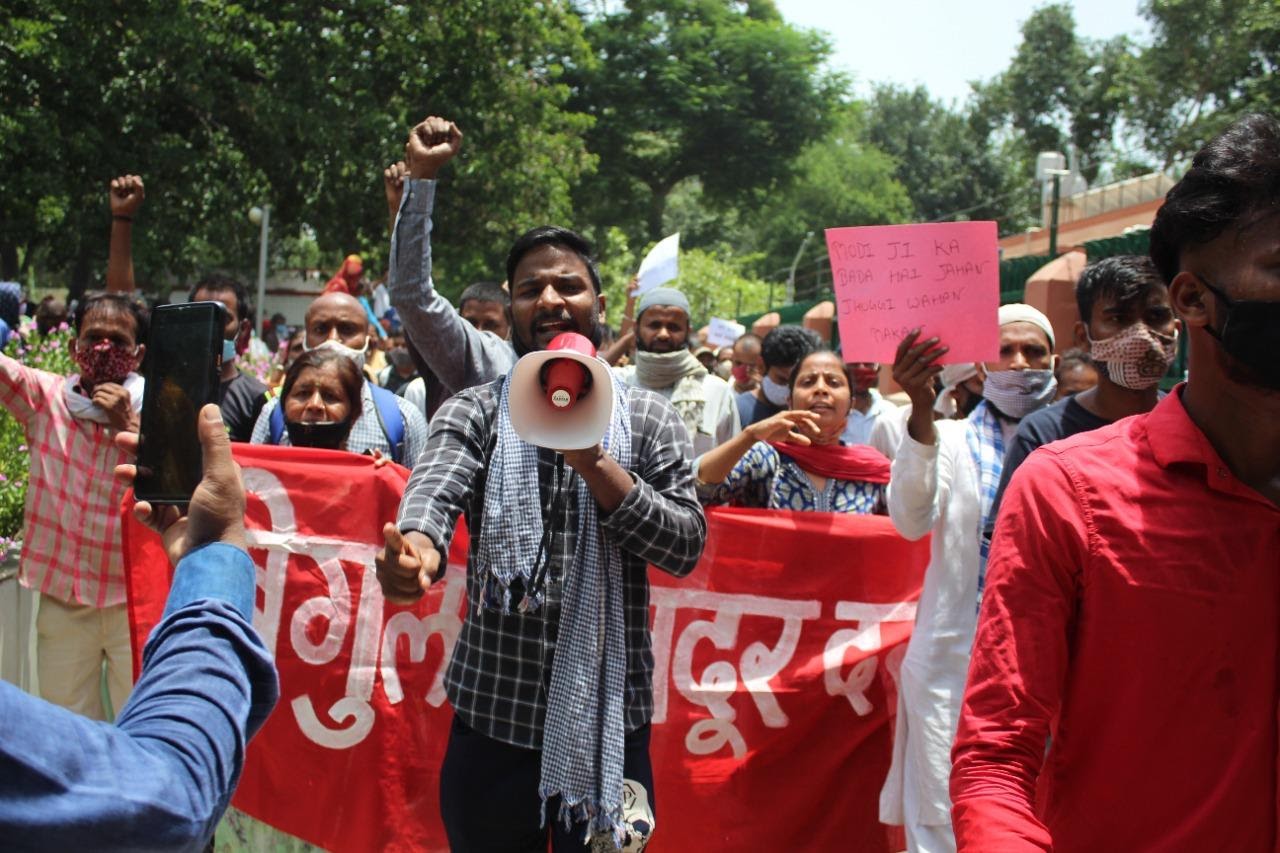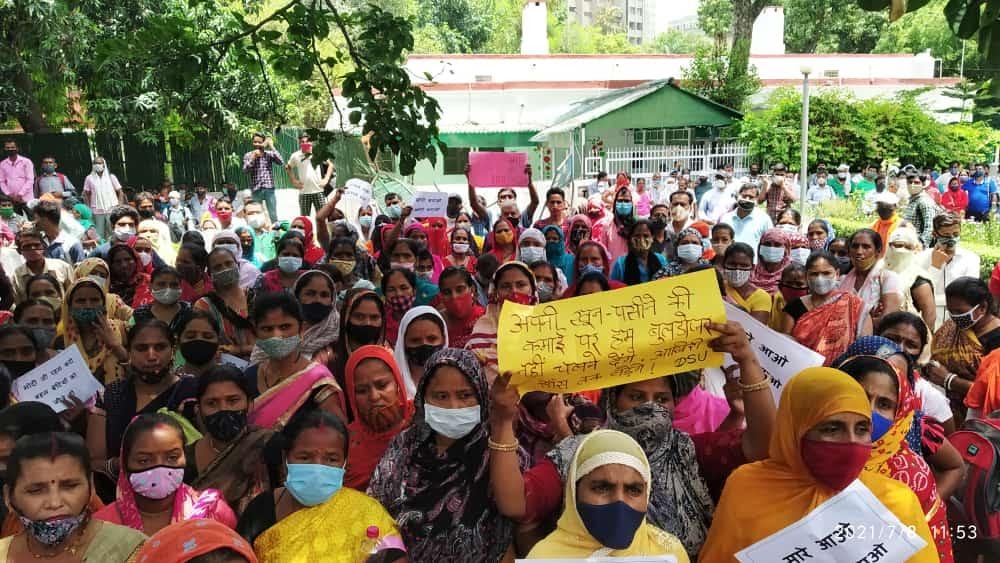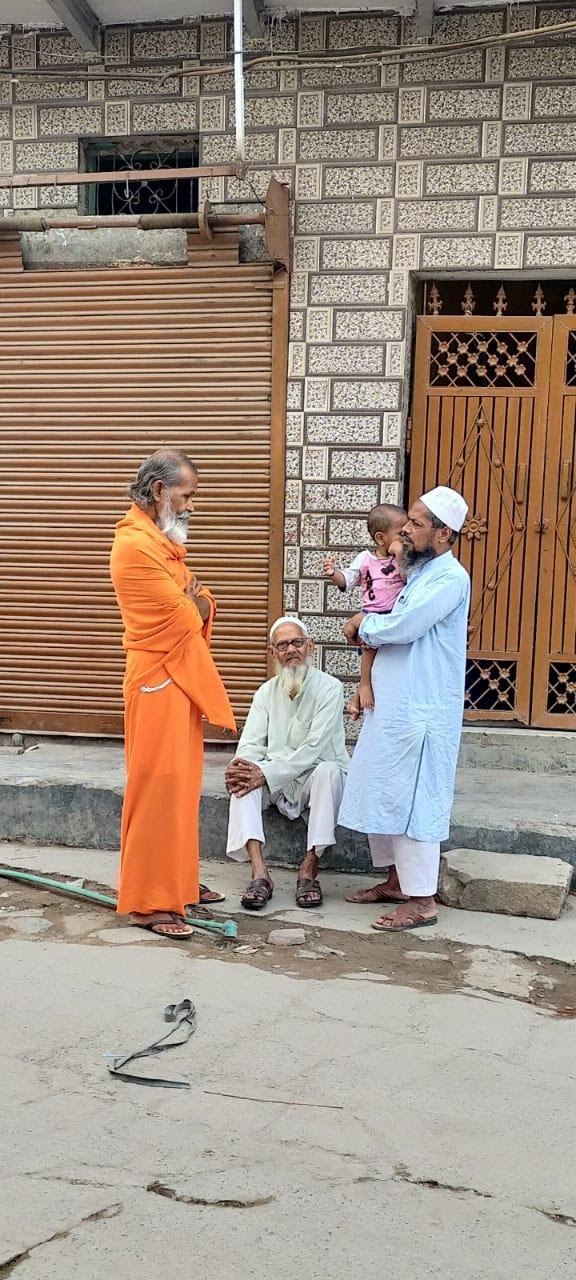'We Will Not Leave Our Homes': Protests, Detentions Continue in Khori Gaon
70 year old takes life after learning of Supreme Court verdict
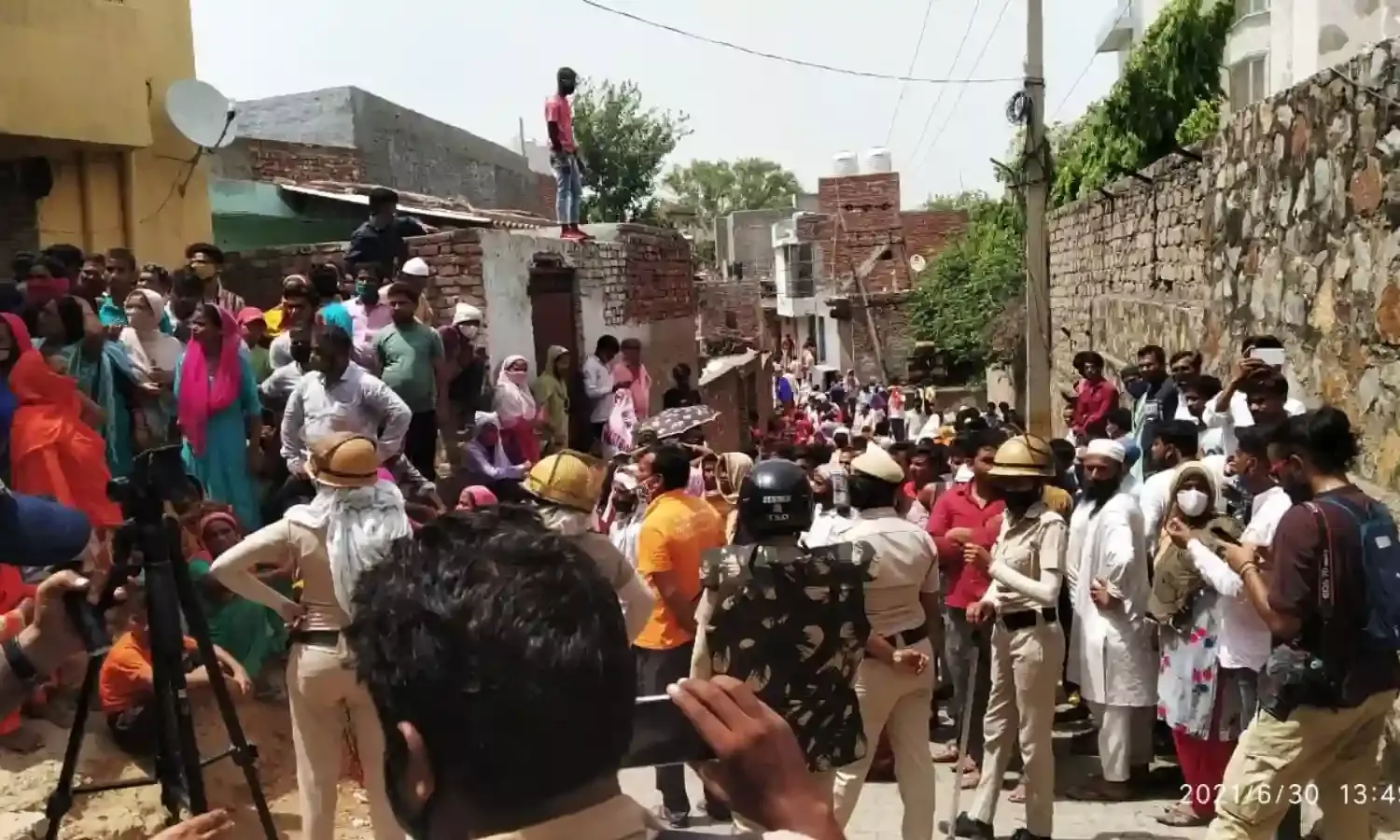
“There are police in every street, it makes us feel like we’re terrorists,” says Shadab (name changed) sheltering under a tree from the scorching heat in Khori Gaon.
The residents of Khori have been fighting the recent Supreme Court verdict to demolish the village with around 10,000 homes and over one lakh inhabitants, citing illegal encroachment of the ecologically fragile lands of Aravali.
But many of the residents have lived in these settlements for several generations. Most are daily-wage workers and have nowhere else to go.
“We have faced many hardships, we made this house with everything we had, we even had to feed our children less to make our houses here, where else will we go? We will not leave our homes,” says Noor Salma, a resident of 20 years.
The plight of most people here seems to be the same, many having invested lakhs to build their homes in the village.
“We never thought our lands would be taken away like this. Over the years our family has invested around 15 lakh rupees to build a suitable home for us, how does the government expect us to leave all our life’s work and settle somewhere else?” asks Shadab, whose family has owned their house in Khori for 30 years.
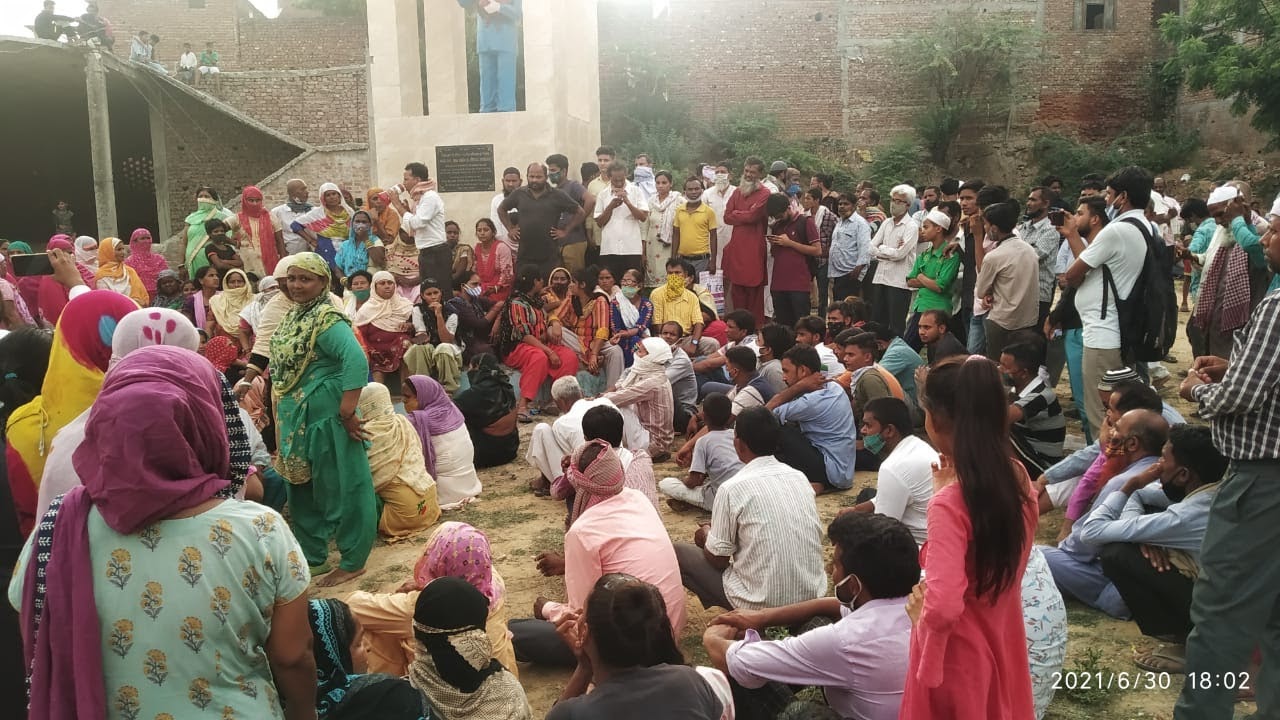
After the verdict Haryana chief minister Manohar Lal Khattar declared that 1,400 families identified by his government as Haryana voters would be provided with vacant flats in Dabua Colony in Faridabad at pre-determined rates and with easy access to loans.
The residents, however, are displeased with the announcement and do not consider it a viable option. “The flats are not at all in livable condition. The area is infested with pigs and with litter everywhere, sanitation is a big question.
“Most of the residents have said a firm no to living in such a place,” says Aahan, a Khori resident.
“The flats the government is providing are not suitable for human living, on top of which we have to pay for such a space, making it hard for many to afford. We have already invested a lot here,” says Shadab.
“We are not against the government or the court: all we are asking is for our safety. We will be pushed out to homelessness with no other option at hand.”
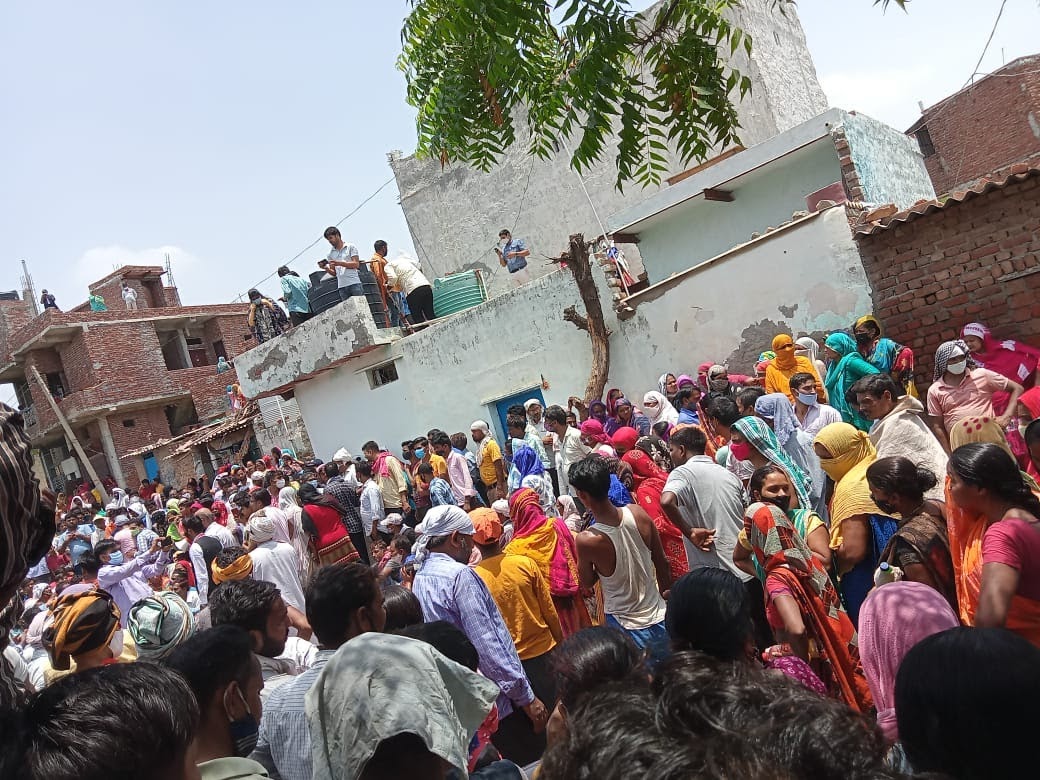
“Asking the inhabitants to vacate their homes amidst a pandemic also seems reckless and equally dangerous,” Alam, an activist in the Khori Majdoor Awaas Sangharsh Samiti pointed out.
Life has been made difficult in the extreme for the people of Khori. After the Supreme Court verdict, the administration cut off running water and electricity, making the summer heat unbearable for residents here.
Some children are unable to attend their online classes as there is no electricity in the area.
“I see children crying because of the extreme heat, life has become very hard for these people,” said Ravinder Singh, president of the Bhagat Singh Chattra Ekta Manch.
Before the powercut, people here were forced to depend on private electricity providers who charge an exorbitant 14 rupees per unit.
Water shortage has become another hurdle: with the supply cut off many are forced to walk a kilometre to the nearby railway colony and bring pails of water back home. Pregnant women and children are forced to carry heavy buckets of water to survive.
“I see young girls carrying buckets more than their weight,” says Shadab.
“Not everyone here can afford to buy water, so they have to walk long distances for access to water bodies near the settlement,” says Alam.
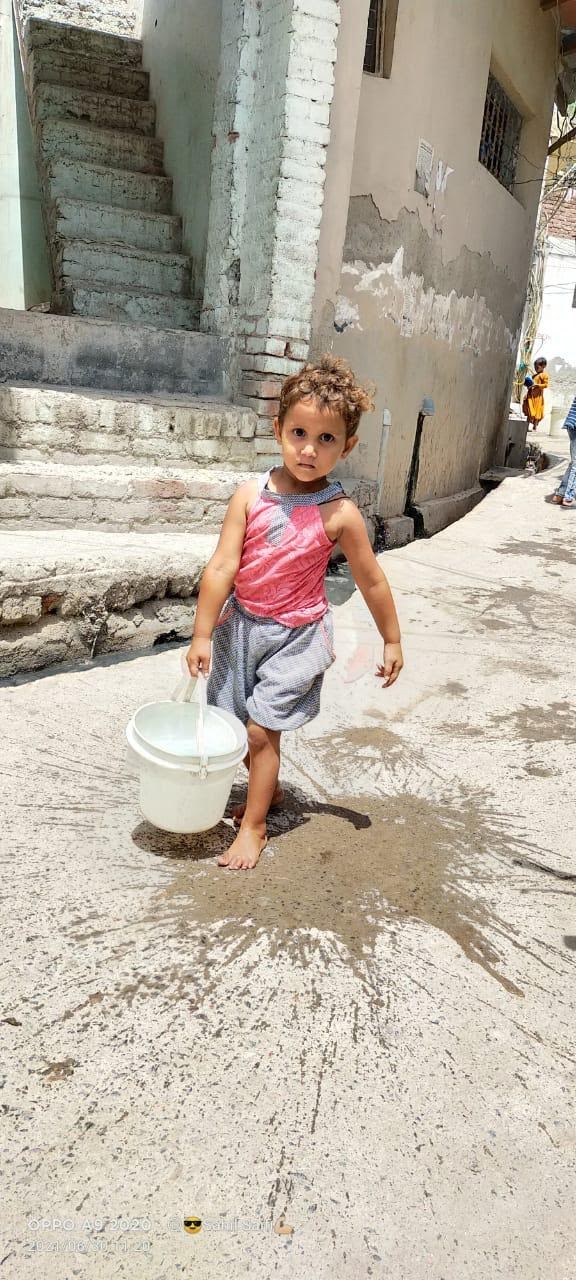
Threatened with dispossession and being made to suffer, people here are adamant to keep up the fight for their rights. Many are protesting with student organisations like the Bhagat Singh Ekta Chattra Ekta Manch (BCEMS), the Khori Majdoor Awaas Sangharsh Samiti and others.
Several protests against the verdict have been organised in the last few days. On June 30 a panchayat was called in Ambedkar park, where Samyukt Kisan Morcha leader Gurnam Singh Chaduni was to address residents.
Police officers swarmed into the ground. The residents were demanding that the police vacate the grounds so they could hold their panchayat, but soon the situation tensed up and stone pelting began.
“The police started to lathicharge the people. The female police officers did not hit anyone as far as I saw, but the male police officers did not spare anyone. A 35 year old woman who had come to participate in the panchayat fell into a cot while getting away from the situation, but the police beat her mercilessly with sticks while she was down,” says Sangeeta Geet, vice-president of the BSCEM.
Many residents and activists suffered injuries at the hands of police. Seven people were arrested.
“A lot of our members also incurred injuries. I was also beaten and suffered injuries to my arm and back. Along with me, Rajveer from our organisation was also arrested.
“Ordinary residents who hadn’t done anything were arrested too. One of the people arrested was pleading with the police as he was scared a case against him would ruin his future opportunities,” BSCEM president Ravinder Singh told The Citizen.
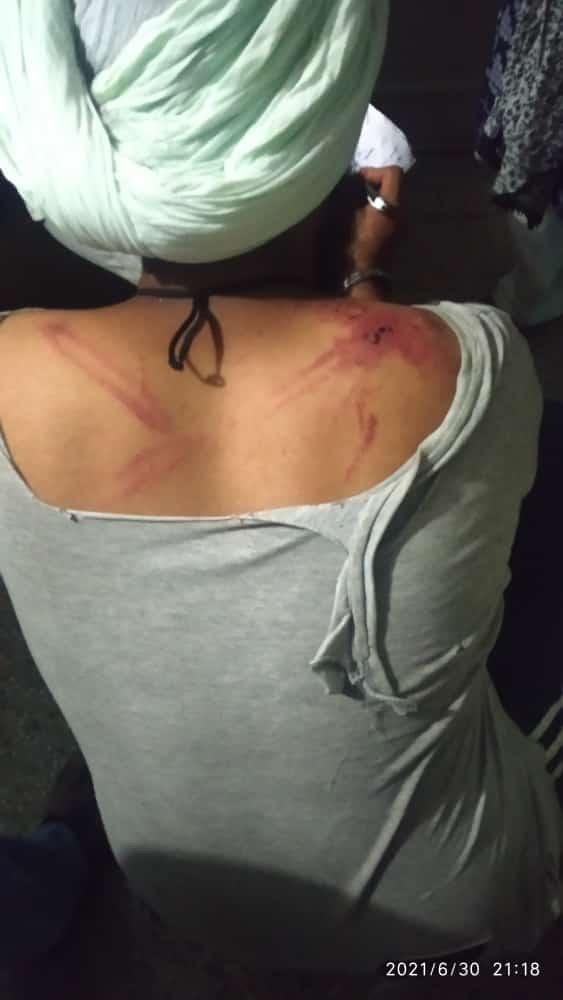
Shadab, who is an electrician and a singer by profession, was one of those arrested. “I have never been to a police station before and so I was really scared. I was not present with the crowd, a few people had entered my house to save themselves from the police, I was arrested with them.
“When I told the officers I was also a singer they made me sing songs in the station, and saying they didn’t like my singing I was slapped for it. They also made me press their feet, it was utterly humiliating. We were freed late at night but not without a warning,” Shadab recalls.
“There have been cases where the police have taken away a few villagers only to release them after a few days. This intimidates the residents here,” Alam explains.
We tried to reach out to the Faridabad police but could not get a statement from them.
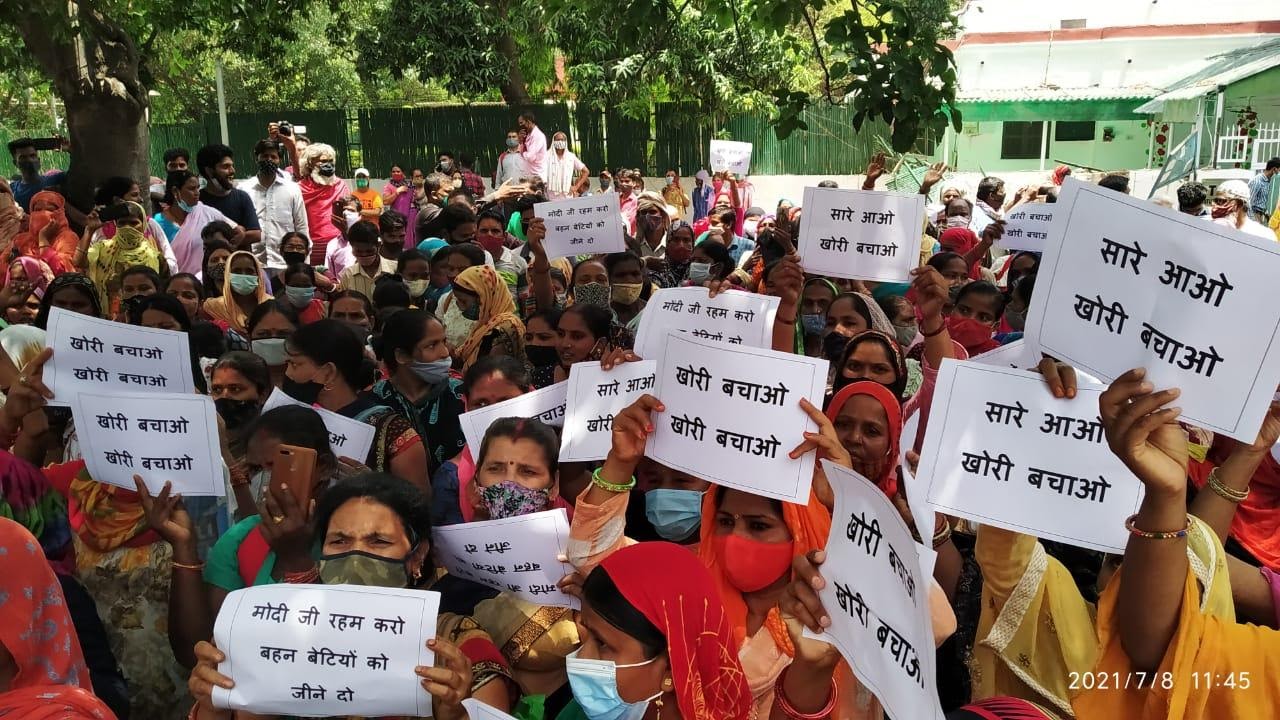
There have been continuous protests on July 7 and 8. Residents and activists are getting together to protest against the state. On the 8th police detained a large group of people.
The protestors are demanding a stay order on the demolition of people’s homes, the immediate restoration of water and electricity, compensation for the homes demolished so far, and compensation for the deaths of inhabitants caused by the cutting off of water and electricity.
While some are ready to take up the fight, others could not bear the prospect of being forced to vacate the homes they have known all their lives. A 70 year old ended his life after learning of the SC’s verdict
Others are losing hope as no conversation is taking place with the government, and have begun vacating their homes.
“Every day our family fights on the same topic, if we should shift or not,” said Ahaan.
Many are ready to continue the fight.
“I have lived all my life here, I can’t imagine living away from my sisters and daughters here, I refuse to go anywhere else,” said Noor Salma.
The next hearing in the case is scheduled for 27 July.
Says Shadab with a hint of sadness, “I heard a qadri and a pandit talking, the pandit said what will happen to the temple? The qadri replied, the same that happens to the mosque.”
